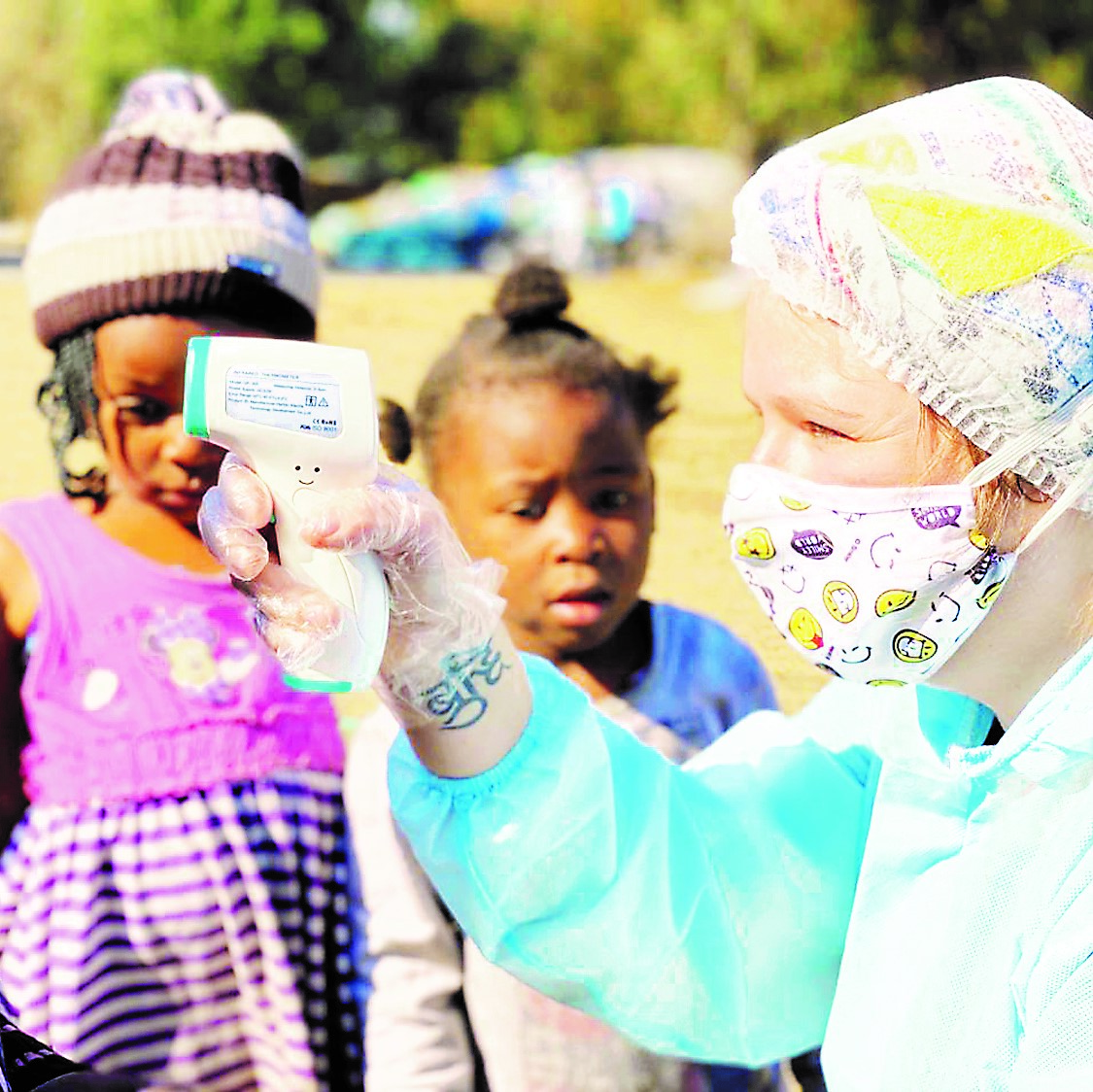
News

Harvesting Brakpan’s COVID-19 survival
JORDAN MOSHE
Her efforts ensure that hundreds of people are fed, able to care for themselves, and know that they matter.
“Hunger is a force that makes people do unimaginable things just to eat,” Waner told the SA Jewish Report. “COVID-19 hasn’t created new issues, it’s highlighted pre-existent issues. Hunger is just one of them, and whether we have food available for people or not, they stand and wait.”
Since the onset of the lockdown, Waner has done whatever it took to provide meals for the hungry in Brakpan, providing more than 12 000 meals to date. A documentarian by profession, she has made the well-being of others a priority in her life, especially in Brakpan on the East Rand.
“My family has always had a strong connection with Brakpan,” she says. “Waner’s Shoe Store was well-known across the East Rand, and my late grandmother, Edith, was always involved in the community. My father and late uncle were joint presidents of the Brakpan Shul, and were committed to keeping it going so that there would be a Jewish presence here.”
Waner upheld her family’s values and commitment to giving back when she took up the plight of a group of women and children living in the informal settlement of Plastic City. “Locals blamed them for everything,” she says. “Pollution, crime, and other things were pinned on them. I wanted to find out who they really were, and how they lived.”
To her astonishment, she discovered that the group was operating a children’s crèche within the settlement, determined to give youngsters as much of a normal life as possible.
“Sister Jessie and Hlengiwe Nkosi had founded a school in Plastic City in spite of having no income or support,” says Waner. “They did it against a background of xenophobia and hatred. I had an obligation to help them.”
Waner decided to make the settlement the focus of a documentary, sharing the story of its residents and highlighting the extent to which prejudice was robbing children of the opportunity to lead normal lives. Her film, The Harvest, was awarded best documentary at the Echo BRICS Film Festival in Moscow earlier this year.
However, it garnered a great deal of negative publicity as well. “I got lots of hate mail, with people complaining that the children didn’t belong in this crèche,” she says. “At the end of the day, they’re also human. They also need to live.”
Inspired by a visit to Yad Vashem in Israel, Waner created the Harvest Foundation, an organisation which enables individuals to use agricultural harvesting as a form of support and therapy.
“A secret food garden existed in the Warsaw Ghetto to create hope for children,” says Waner. “The idea of harvesting promoted positivity and hope for the future, and I used the same principle for the crèche children. I wanted them to gain life skills through harvesting, learning how to survive while nurturing themselves as individuals.”
When COVID-19 struck earlier this year, Waner created the Harvest COVID-19 Relief Project to meet the additional needs of those without provisions. Working closely with Shoprite, the Lunch Box Foundation, and the South African Jewish Board of Deputies, the project has helped to provide meals for hundreds of people.
“Regardless of a virus, life carries on,” says Waner. “People living in Plastic City still had to make a living and feed themselves. Many of them are recyclers, and they were unable to work, so we had to do something.
“We stepped in with meals. I’ve seen grown men cry with gratitude because they wouldn’t have a meal otherwise. They live hand to mouth. We had to do something for the sake of those without, especially children.”
When logistical issues and the cost of delivering supplies to Plastic City became a problem, the Brakpan Shul offered its grounds to the foundation. Waner says the offer highlighted the role the Jewish community can play at this time.
“The project came even closer to my heart through the use of the shul,” she says. “Jews know what it is to be oppressed and othered, and we know what help really means. We can’t look the other way when people need us more than ever.”
Waner says many individuals are contributing to the project, making food donations which are invaluable to the organisation. “COVID-19 has really brought across how important it is not to look the other way. How can you not help people when they need you? I see in COVID-19 a desperation which is universal and always present. We’re all equal in this, and need to respect and care for one another.”
Her project’s success isn’t hers alone, she stresses. Beyond her family’s inspiration, she says her colleagues are a source of continuous support. “The Nkosi sisters and Thabile Khumalo Ka Dlada are my sisters, my strength in this project,” she says. “I’m nothing without them.”





George
July 9, 2020 at 12:18 pm
‘ interestingthat someone is doing something positive’